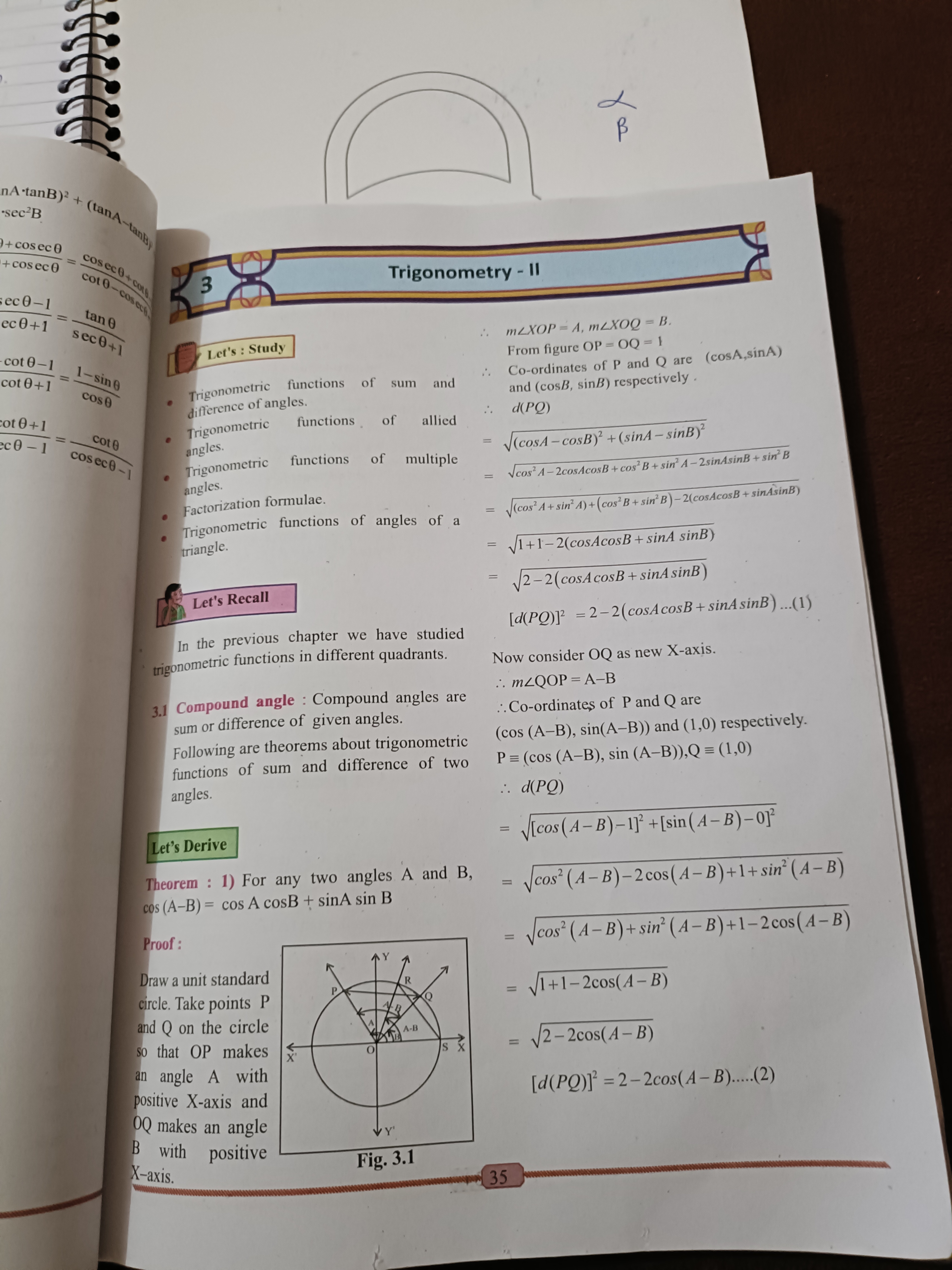How to derive the formula for the distance between points P and Q in terms of angles A and B?

Understand the Problem
The question is related to the derivation and application of the trigonometric functions involved in compound angles and their properties, particularly focusing on the distance between two points on a circle defined by angles A and B.
Answer
The distance between points P and Q is $d(PQ) = 2\sin\left(\frac{A - B}{2}\right)$.
Answer for screen readers
The distance between points P and Q on a unit circle defined by angles A and B is given by: $$ d(PQ) = 2\sin\left(\frac{A - B}{2}\right) $$
Steps to Solve
-
Understanding Coordinates of Points P and Q
In the unit circle, the coordinates of point P corresponding to angle A are given by $(\cos A, \sin A)$ and for angle B by $(\cos B, \sin B)$.
-
Calculating the Distance d(P, Q)
The distance between points P and Q is calculated using the distance formula: $$ d(PQ) = \sqrt{(x_2 - x_1)^2 + (y_2 - y_1)^2} $$ Substituting in the coordinates of P and Q: $$ d(PQ) = \sqrt{(\cos B - \cos A)^2 + (\sin B - \sin A)^2} $$
-
Expanding the Distance Formula
Expanding the squared terms, we have: $$ d(PQ) = \sqrt{(\cos^2 B - 2\cos A \cos B + \cos^2 A) + (\sin^2 B - 2\sin A \sin B + \sin^2 A)} $$ Using the identity $\sin^2 x + \cos^2 x = 1$: $$ d(PQ) = \sqrt{2 - 2(\cos A \cos B + \sin A \sin B)} $$
-
Using the Cosine of the Angle Difference
Recognizing that the expression $\cos A \cos B + \sin A \sin B$ can be simplified as: $$ \cos(A - B) $$ Thus, we rewrite the distance as: $$ d(PQ) = \sqrt{2 - 2\cos(A - B)} $$
-
Final Simplification
By factoring out 2, we can further simplify: $$ d(PQ) = \sqrt{2(1 - \cos(A - B))} = \sqrt{2 \cdot 2 \sin^2\left(\frac{A - B}{2}\right)} = 2\sin\left(\frac{A - B}{2}\right) $$
The distance between points P and Q on a unit circle defined by angles A and B is given by: $$ d(PQ) = 2\sin\left(\frac{A - B}{2}\right) $$
More Information
The formula derived, $d(PQ) = 2\sin\left(\frac{A - B}{2}\right)$, is a key result in trigonometry that relates the distance between two points on a circle to the sine of half the angle difference. This result is useful in various applications including geometry and physics.
Tips
- Forgetting to use the unit circle: The relationships break down if coordinates aren't correctly identified on the unit circle.
- Incorrectly applying the distance formula: Ensure the correct formulation of $d(PQ)$ is used, considering both the x and y coordinates appropriately.
AI-generated content may contain errors. Please verify critical information